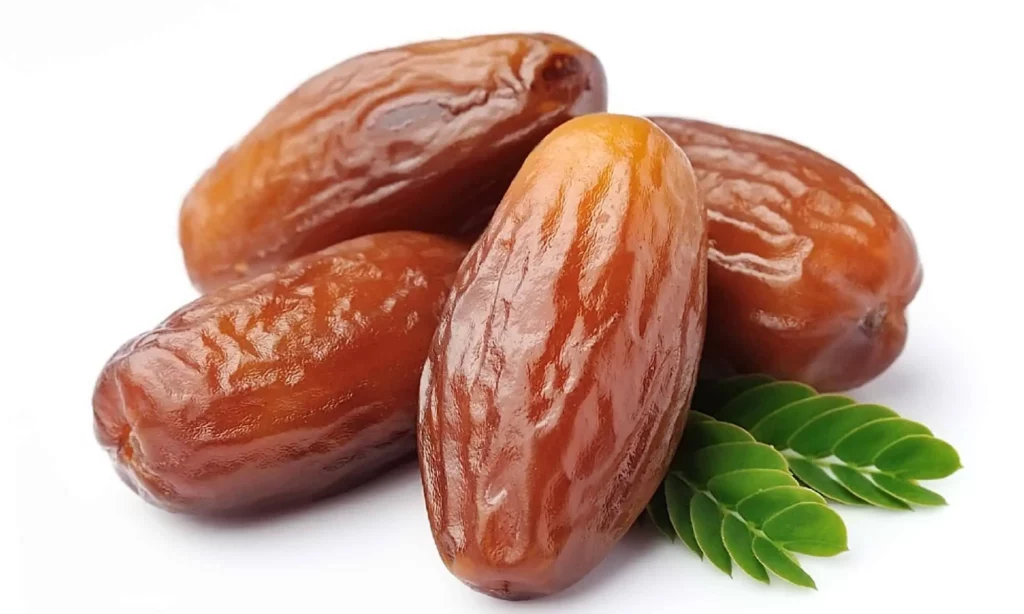


Diabetes is a chronic condition that affects millions of people worldwide. With the rising prevalence of diabetes, there is a growing interest in understanding the role of different foods in managing blood sugar levels. Among the foods that have sparked debates is the sweet and delicious fruit – dates. As individuals with diabetes strive to maintain a balanced diet, it is important to evaluate the suitability of dates as a part of their meal plan. In this article, we will explore the potential benefits and risks of consuming dates for individuals with diabetics, shedding light on whether dates can be included in a diabetic-friendly diet.
Diabetes is a chronic metabolic disorder characterized by high blood sugar levels resulting from inadequate insulin production, ineffective insulin utilization, or both. There are primarily two types of diabetes:
Role of Diet in Diabetes Management: Diet plays a crucial role in managing diabetes, regardless of the type. A well-balanced diet helps regulate blood sugar levels, promotes weight management, reduces the risk of complications, and contributes to overall health. For individuals with diabetes, it is essential to focus on the following dietary considerations:
The glycemic index (GI) and glycemic load (GL) are tools used to assess the impact of carbohydrates in food on blood sugar levels.
Understanding the GI and GL of foods can help individuals with diabetes make informed choices. Low GI and GL foods have a smaller impact on blood sugar levels and are generally considered better options for managing diabetes.
Dates are sweet fruits that come from the date palm tree and are known for their rich taste and sticky texture. They offer several nutritional components that make them an interesting food to explore for individuals with diabetes.
The nutritional value of Medjool dates (100 g portion) according to the USDA is as follows:
The most commonly available dates are all rich in minerals and salts. They contain higher protein content than other fruits such as apples, bananas, oranges, etc.
One important consideration when it comes to dates and diabetics management is their high sugar content. Dates are naturally sweet and contain a significant amount of natural sugars, including fructose, glucose, and sucrose. A 100-gram serving of dates can contain around 63 grams of sugar. For individuals with diabetes, consuming foods high in sugar can lead to rapid spikes in blood sugar levels. Therefore, it is crucial to be mindful of the portion sizes and overall carbohydrate intake when incorporating dates into the diet.
Due to their high sugar content, portion control is essential when consuming dates, particularly for individuals with diabetes. While dates offer nutritional benefits, excessive consumption can lead to undesirable effects on blood sugar levels.
A suitable approach is to include dates as part of a balanced meal or snack while considering the overall carbohydrate content of the meal. By practicing portion control and considering the overall carbohydrate intake, individuals with diabetes can enjoy the taste and potential benefits of dates without compromising their blood sugar control.
Read Also: Is Almond Milk Good For Diabetics?
The concept of glycemic index (GI) is a measurement that ranks how quickly carbohydrates in food raise blood sugar levels compared to pure glucose, which has a GI of 100. Foods with a high GI are digested and absorbed rapidly, leading to a more rapid increase in blood sugar levels. On the other hand, foods with a low GI are digested and absorbed more slowly, resulting in a slower and more gradual rise in blood sugar levels.

The glycemic index value of dates can vary depending on the variety and ripeness. Generally, dates have a medium to high glycemic index. The GI value for dates can range from approximately 43 to 75, with an average value falling around 50-55. This places dates in the moderate glycemic index category.
To provide a comparison, it is worth noting that pure glucose has a GI of 100, while other common foods may have different GI values. For example:
While the glycemic index provides valuable insights into how different foods affect blood sugar levels, it does have some limitations when assessing the impact of dates on blood sugar levels:
Dates offer potential health benefits that could be advantageous for individuals with diabetics. While moderation is key, the following aspects of dates may contribute to diabetics management:
While studies specifically focusing on dates and diabetes management are limited, some research indicates potential positive effects:
Dates can have an impact on blood sugar levels, especially for individuals with diabetes. Due to their high carbohydrate content, dates can cause a rapid increase in blood sugar levels if consumed in large quantities or without considering portion control. However, the glycemic response to dates can vary among individuals and may be influenced by factors such as overall diet composition, individual metabolism, and the presence of other foods in a meal.
Dates are so versatile that you can eat them in different ways at different times for optimal benefits. They make an excellent pre workout snack, a great bedtime snack and can also form an integral part of your breakfast when you combine them into your porridge or cereal.
It’s important to note that dates work better as a snack than a part of a heavy meal. Along with nuts, they make an excellent mid morning or evening snack.
If you take dates in moderation, it does not increase blood sugar. Since dates have a low to moderate GI, consuming two dates a day is not harmful to a person with diabetes. A study shows that a person with diabetes can eat 7-10 dates a day.
Researchers found that consuming 15 grams of carbohydrates from dates did not affect their blood sugar levels. Also, dates have more fiber and minerals than plain, refined sugar.
They are an excellent substitute for refined sugar in oatmeal, cereal and smoothies and do not have any side effects when consumed in moderation.
Also, it is essential to check that your dates aren’t packaged with additional sugar and preservatives, as that would be detrimental to your health. So, always make sure to read labels.
Dates can be included in a diabetes-friendly diet when consumed in moderation and in consideration of overall carbohydrate intake. Portion control, balanced meals, and individualized approaches are crucial. Monitoring blood sugar levels and consulting with healthcare professionals are recommended to ensure optimal diabetes management.
Read Also: Is Amla Good For Diabetes? Exploring The Benefits And Risks
A. Help in diabetes management, boost energy, strengthen bones, relieve constipation, promote heart health, reduce inflammation, manage anemia, and encourage healthy weight gain.
A. Eating dates every day can provide you with a good amount of fibre, thereby helping you to avoid eating junk and regulating your bowel movements.
A. Yes, dates can be eaten every day as a part of your daily diet as they have many proven health benefits. However, make sure you have them in recommended quantities only.
A. Eating dates in large quantities can cause harmful spikes in blood glucose levels due to sugar and constipation due to excess fibre. In addition, if impure and not washed and processed correctly, people with sulphite allergies could have abdominal distress.
A. Dates are from the Date Palm, and figs grow on Ficus trees and are two completely different species. Their appearance is different, with figs being plump and round and dates being oval and wrinkled. Dates tend to have a higher fibre and sugar content than figs.
A. Yes, dates contain a lot of fibre, which can aid in clearing out the colon and relieve constipation by softening the mass of faeces and increasing its size and density, making stools easier to pass.
A. Yes you can have water after eating dates. It has no negative effect and helps hydrate and improve digestive health.
A. Yes, adding dates to your diet can actually help shed weight, as dates are high in fiber, they keep one full for longer and help to better manage weight.
A. No, dates are not raisins. Dates are stone fruits derived from the date palm tree, whereas raisins are dried grapes. Although they contain a similar amount of fibre, they differ in terms of appearance and taste.
A. Yes, if combined with a healthy diet and exercise, they help reduce your belly fat. Furthermore, they have a good amount of both soluble and insoluble fibre which will keep you satiated and can protect you from hunger pangs.
A. Yes, dates should be stored in an airtight container in the refrigerator to help them retain their moisture.